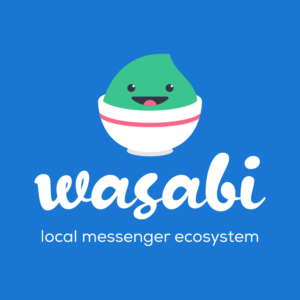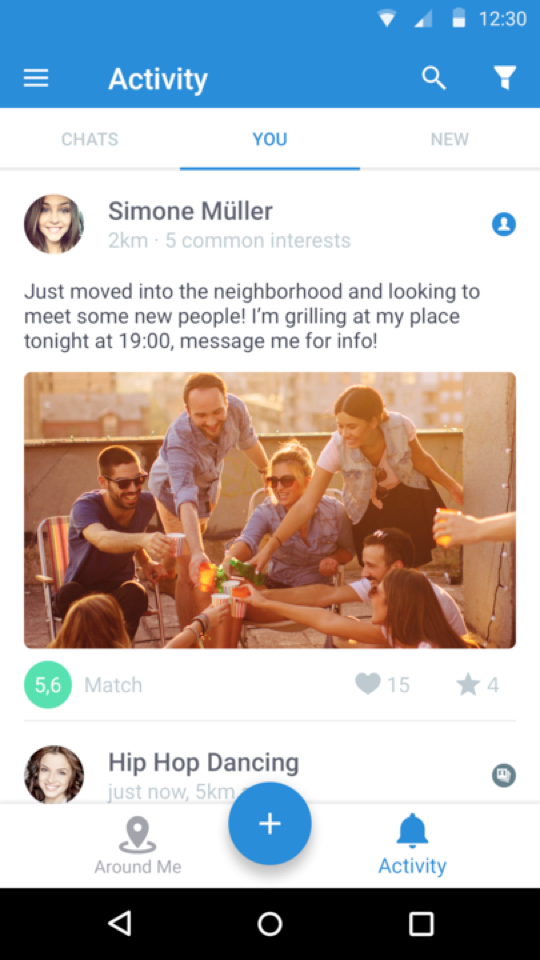Meet our CODE_n CONTEST Finalists 2016: dynacrowd from Germany

dynacrowd developed YOU OS to provide a core technology for location-based services needed in app development and the internet. It’s about matching users to micropages based on location, interests, time, gender, and age. Micropages provide multiple functions such as identifying people, groups, events, chats, votes, etc. It’s open to 3rd-party process integration. Revenues are generated through SaaS and PaaS, with options to enter into SDK licensing and micropayment integration for content and services. Want to find out more about the CODE_n CONTEST finalist? Read out interview with founder Christoph Dümmen:
What is dynacrowd all about? How did you come up with the idea?
Christoph: Communication is eating the world. It’s about getting in touch with things that matter. That’s why we founded dynacrowd to build a platform solution for hyperlocal instant connectivity, communication and interaction. It doesn’t matter whether it’s a human, device, service or a beacon no matter whether you want to chat or shop. That’s our vision. And we built the technology to do exactly that.

dynacrowd founder Christoph Dümmen
We saw, that there is no working solution for instant local communication. I’m convinced that just placing pointers on maps isn’t going to be it. Just the question “Which pin is relevant for me on this map?” highlights the limitations of that concept. We knew that we had to come up with a totally different approach to enable people to connect and communicate within their environment. That’s also why we developed the Wasabi Local Messenger Ecosystem as a scalable platform where people, communities and businesses can establish their communication, interaction and businesses’ needs. What is unique about our platform is that each piece of content is rated in realtime for each individual user based on multiple dimensions (e. g. distance, time, age, gender, interests, etc), and in doing that, we provide relevant data to the people instead of thousands of pins around. That makes discovery easy, relevant and fun. Which is really cool, new and contains a lot of business models.
“Digital Disruption“ – that’s the motto of this year’s CODE_n CONTEST. What makes your solution innovative, what makes it disruptive?

Christoph: Our Local Messenger Ecosystem disrupts the way one discovers what’s interesting for here and now. It’s not just an App, but a hyperlocal communication and interaction platform where you can build on smart solutions including information, interaction and transaction. It’s not the Internet telling facts and recommendations which might have been written 2 years ago. It’s realtime. It’s now. It’s not only finding restaurants around, it’s getting in touch, chatting and making reservations, buying, anything…. It’s a platform with communication containers that can contain every imaginable interaction type. Our current interaction types are only the beginning of a series of predefined interactions which we call Microflows. All were built as a set of business services that customers can choose to use.
You’re one of the 13 finalists in the Connected Mobility contest cluster. Which challenges do you think young companies have to face in this sector? How do you handle these challenges?
Christoph: Young and small startups are facing a situation that they can hardly implement a new industry standard like Bosch does for connected home solutions. We consider it as an advantage. While others take care of connecting devices and building networks and enabling communication between devices, we are focused on the heart of connectivity and mobility. That’s what it’s all about. We put people and especially their benefit first. Mobility and connectivity itself is of no worth. Mobility serves a purpose. We focus on technology that enables people to find and interact with relevant people, devices and services. We are building technology that assembles all these pieces to allow people to experience their environment in completely new ways.
We read that you don’t use games on your smartphone and you are convinced the internet of the future will be a local one and rather work with platforms than apps. How does this go together with current trends like Pokemon Go and the tendency of people to share their photos, feelings data anywhere at any given time?
Christoph: Great question. I myself as a non-mobile gamer enjoy Pokemon Go so much. Pokemon Go is within the core of a hyperlocal experience. It underlines exactly what I said. There is mystery in proximity which we need to unveil. Eight weeks ago we were confronted with the fact that especially young users didn’t have GPS activated. That’s history! It’s an open door for local experiences we and our partners now offer to users. Sharing experiences realtime is a big thing. And the local dimension of that information cannot be underestimated. Let’s compare with Google Maps. They offer you a taxi when you search for your route. It’s the platform which decides which taxi you’ll get; that’s the future. Platforms will make it and a new generation of mobile and traveling users will use platforms to access the services they need. We want to be that platform provider. We are prepared because we included business models from the very beginning. Can’t wait to push the live button 😉
Thanks for the great chat, Christoph!






Write a comment